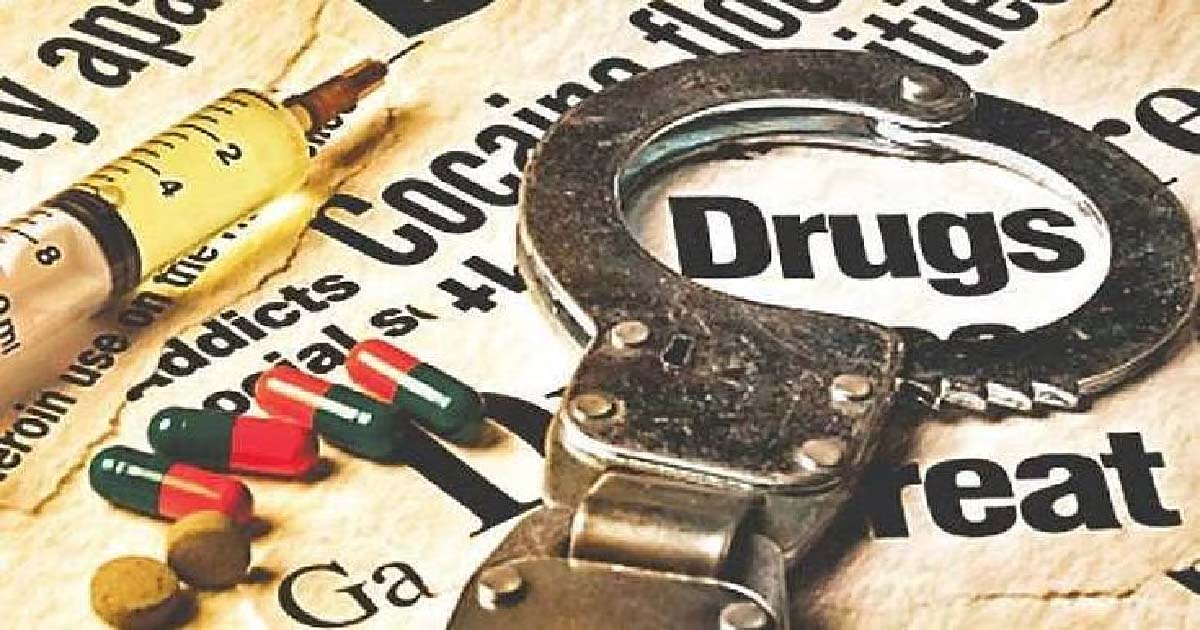Crime
Plea in SC challenging delimitation exercise in J&K
A plea has been moved in the Supreme Court challenging the March 2020 decision of the Central government to appoint a Delimitation Commission to redraw the constituencies of Jammu and Kashmir.
The plea moved by Haji Abdul Gani Khan and Dr. Mohammad Ayub Mattoo, both residents of Kashmir, sought directions seeking a declaration that an increase of number of seats from 107 to 114 in the union territory of Jammu & Kashmir is ultra vires the constitutional provisions such as Articles 81, 82, 170, 330, and 332 and statutory provisions particularly under section 63 of the Jammu & Kashmir Reorganisation Act, 2019.
The plea also urged the top court to issue a direction to declare notification issued on March 6, 2020 constituting the Delimitation Commission to take up delimitation in the UT of J&K and states of Assam, Arunachal Pradesh, Manipur and Nagaland as violative of Article 14 of the Constitution.
“In fact, in the State of Jammu and Kashmir, the census operation was completed in 2001, but the delimitation was done in 1995. Even on this count, the entire process adopted is unconstitutional as there was no population census operation during 2011 at all for Jammu and Kashmir,” said the plea.
The plea argued that if August 5, 2019 was to unite the Jammu and Kashmir state with India, then the delimitation process defeats the “new order” of one nation and one Constitution in the country. It said: “While Article 170 of the Constitution of India provides that the next delimitation in the country will be taken up after 2026, why has the UT of Jammu and Kashmir been singled out?”
The plea added that after the census of 2001, the Jammu and Kashmir Assembly amended ‘Section 47’ of the Jammu and Kashmir Constitution, vide the Jammu and Kashmir (Twenty-nine amendment) Act, 2002, to put on hold the delimitation exercise till after 2026, identical to and in tune with Article 170 of the Indian Constitution.
“Issuance of Notification by the Law and Legislative Department appointing the Delimitation Commission is without jurisdiction, unconstitutional and ultra vires to the election laws apart from J&K Reorganisation Act, 2019,” it added.
The plea contended that any move to increase the number of seats in Jammu and Kashmir must be preceded by a constitutional amendment, besides the amendment of elections laws, namely, the Delimitation Act, 2002 and the Representation of People Act, 1950.
It added that the Delimitation Commission had issued guidelines and methodology for the Delimitation of Assembly and parliamentary constituencies on July 5, 2004, along with the constitutional and legal provisions. “It clearly stated that the total number of existing seats in the Legislative Assemblies of all states, including UTs of the National Capital Region and Pondicherry, as fixed based on the 1971 census shall remain unaltered till the first census to be taken after the year 2026,” it added.
Crime
Navi Mumbai Police Seize Drugs Worth Rs 21 Lakh, Nigerian National Arrested

The Navi Mumbai Police have seized drugs worth over Rs 21 lakh, including mephedrone and MDMA, and arrested a Nigerian national in connection with the case, officials said on Wednesday.
The seizure followed a routine police patrol carried out on December 15 along Palm Beach Road. A team noticed a foreign national standing suspiciously near a parked scooter late at night. When the police approached him for questioning, the man abandoned the vehicle and fled the spot, raising further suspicion.
Upon checking the scooter, the police recovered 70 grams of mephedrone powder, estimated to be worth nearly Rs 17 lakh. In addition, 120 MDMA tablets were also found during the initial search, an official release stated.
Following the recovery, police launched a search operation to trace the suspect. He was later arrested from his residence in Koparkhairane. During a subsequent search of the premises, police recovered additional quantities of drugs, including mephedrone powder worth around Rs 4 lakh and 40 purple MDMA tablets.
While the combined value of the seized mephedrone powder has been estimated at over Rs 21 lakh, the police did not specify the market value of the MDMA tablets recovered during the operation.
The accused has been identified as Aniehe Kingsley Chinedu, also known as Aney Kingsley Chinedu. He is a Nigerian national and has been booked under relevant sections of the Narcotic Drugs and Psychotropic Substances Act.
Police officials said further investigations are underway to determine the source of the drugs and to identify possible links to a larger drug supply network operating in the region. Authorities are also examining whether the accused was involved in drug distribution across Navi Mumbai and neighbouring areas.
The Navi Mumbai Police said such operations would continue as part of ongoing efforts to curb drug trafficking and ensure public safety.
Crime
Mumbai: Mazgaon Court Stenographer Held For Demanding ₹15 Lakh Bribe, Approaches Special ACB Court For Bail

Mumbai: The stenographer posted at court at Mazgaon, Chandrakant Vasudev, was arrested allegedly for demanding and accepting bribes allegedly on behalf of the Additional Sessions Judge, Civil Sessions Court, Court No. 14, Mazagon. Aejazuddin S. Kazi has again approached the special ACB court for bail. The plea is likely to be heard on Thursday.
Vasudev was arrested on November 10 for allegedly accepting a bribe of Rs 15 lakh in exchange for a favourable verdict in a land dispute case. The special court rejected his first bail plea on November 24. A second bail plea claims no need for further incarceration and investigation can proceed without detaining him.
The prosecution claims Vasudev told the agency that Kazi had instructed him to demand the bribe, and after accepting the amount, Kazi asked him to bring it to his residence. It allegedly started on September 09 when Vasudev told the complainant’s associate in the court washroom to “do something for Saheb (the Judge), and the order will be in your favour”. He later demanded Rs 10 lakh for himself and Rs 15 lakh for the judge at a café. After refusal, he threatened via WhatsApp.
Crime
Mumbai Emerges As Main Hotspot For Gold Smuggling Through Airports: DRI Report

Mumbai: The Directorate of Revenue Intelligence, in its report, stated that gold smuggling in the year 2024–25 remained concentrated in hotspots like Maharashtra, Tamil Nadu, Gujarat and West Bengal, serving as entry points or redistribution hubs due to their strategic location, higher number of flights and transit routes.
In 2024–25, the DRI seized 1,073 kg of gold having a market value of approximately Rs 785 crore, the report stated. Mumbai emerged as the main hotspot for gold smuggling through airports, far surpassing all other locations in both the quantity of gold seized and the number of cases detected, the agency stated in its report.
According to the DRI, gold smuggling syndicates operate through a structured network: masterminds located abroad or in India fund operations, organisers recruit carriers, carriers transport concealed gold into India, and handlers receive gold for delivery to key members of the network in India for further sale.
Sometimes, gold smuggled in forms other than foreign-origin bars, such as wax or jewellery, is melted into 24-carat bar form at illicit facilities, sold domestically, converted into jewellery and integrated into domestic markets. Proceeds are usually repatriated abroad via hawala or illegal forex channels, sustaining a multi-layered, highly networked smuggling operation.
“Air routes, especially flights from the Middle East and Southeast Asia that connect to metro and Tier-II airports, are the primary channel for gold smuggling into India. Smugglers exploit diverse passenger profiles, including women, families and airline crew, to smuggle gold into India. Increasingly, smugglers are also concealing gold inside aircraft cavities for later retrieval by crew, passengers or airport staff. Sometimes, gold concealed in the aircraft during the international leg is retrieved by passengers during the domestic leg of the aircraft. Further, transit passengers smuggle gold via body concealment and hand it over to airport staff,” the report stated.
“A more sophisticated and dangerous method involves concealing gold inside the human body. Syndicates mould gold in wax form into small capsules, which are then inserted into body cavities to evade detection by scanners and manual checks. This trend reflects a growing shift towards high-risk concealment techniques that endanger the carrier’s health,” stated the report.
“The gender profile of gold smuggling carriers for 2024–25 revealed that the majority of individuals apprehended were male. However, the presence of women, making up one-tenth of the persons apprehended, highlights a growing trend of female involvement, possibly due to perceptions of lower suspicion during checks. The domicile profile of gold smuggling carriers in 2024–25 indicates that the overwhelming majority were Indian nationals, which highlights the dominance of domestic carriers in gold smuggling. Carriers from Kenya and Iran contributed modestly, with isolated cases involving carriers from Thailand, Turkey, Afghanistan, Oman, the UAE and the USA,” the report further stated.
-

 Crime3 years ago
Crime3 years agoClass 10 student jumps to death in Jaipur
-

 Maharashtra1 year ago
Maharashtra1 year agoMumbai Local Train Update: Central Railway’s New Timetable Comes Into Effect; Check Full List Of Revised Timings & Stations
-

 Maharashtra1 year ago
Maharashtra1 year agoMumbai To Go Toll-Free Tonight! Maharashtra Govt Announces Complete Toll Waiver For Light Motor Vehicles At All 5 Entry Points Of City
-

 Maharashtra1 year ago
Maharashtra1 year agoFalse photo of Imtiaz Jaleel’s rally, exposing the fooling conspiracy
-

 National News1 year ago
National News1 year agoMinistry of Railways rolls out Special Drive 4.0 with focus on digitisation, cleanliness, inclusiveness and grievance redressal
-

 Maharashtra1 year ago
Maharashtra1 year agoMaharashtra Elections 2024: Mumbai Metro & BEST Services Extended Till Midnight On Voting Day
-

 National News1 year ago
National News1 year agoJ&K: 4 Jawans Killed, 28 Injured After Bus Carrying BSF Personnel For Poll Duty Falls Into Gorge In Budgam; Terrifying Visuals Surface
-

 Crime1 year ago
Crime1 year agoBaba Siddique Murder: Mumbai Police Unable To Get Lawrence Bishnoi Custody Due To Home Ministry Order, Says Report












